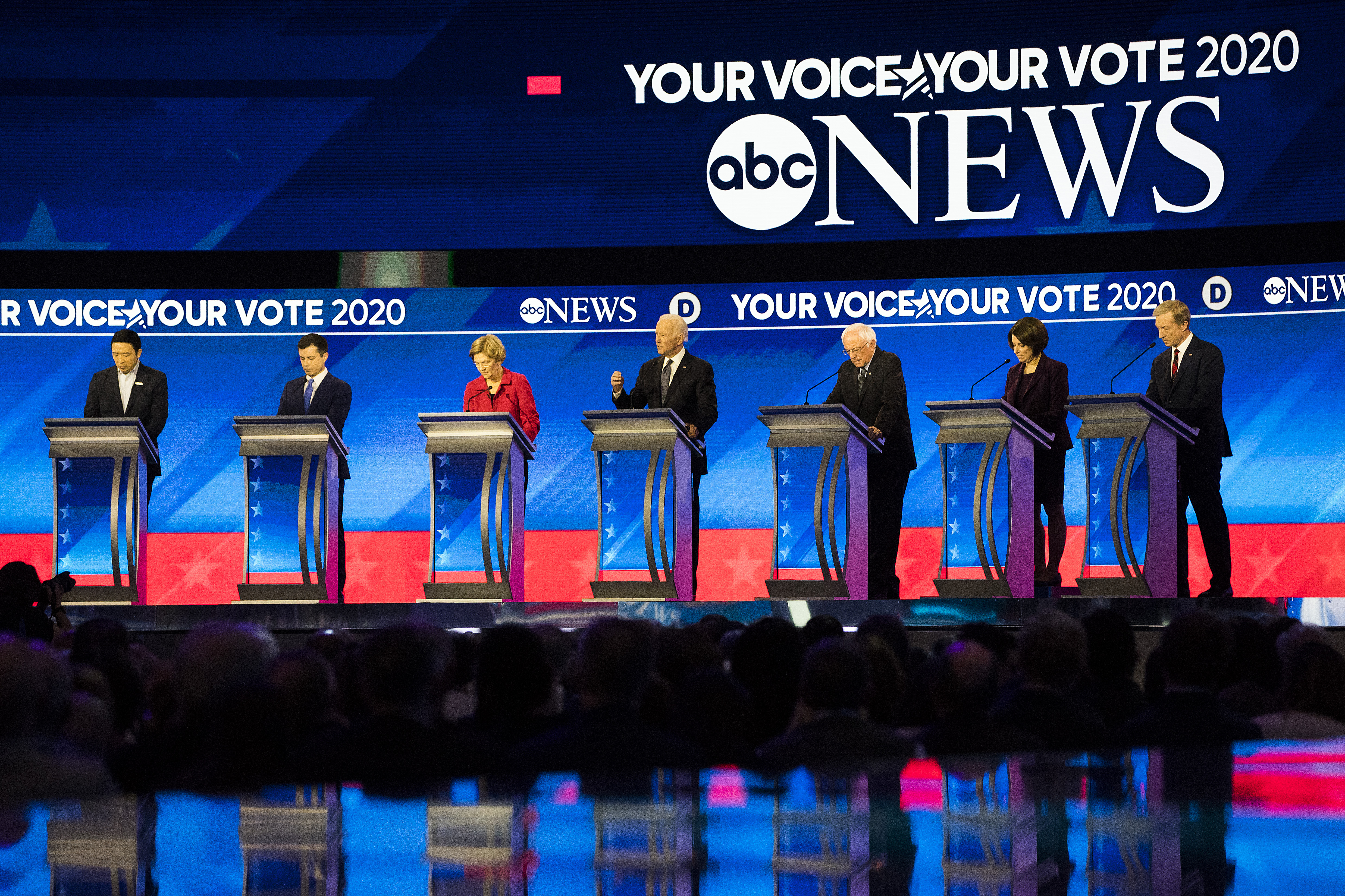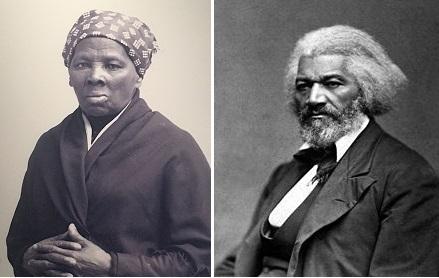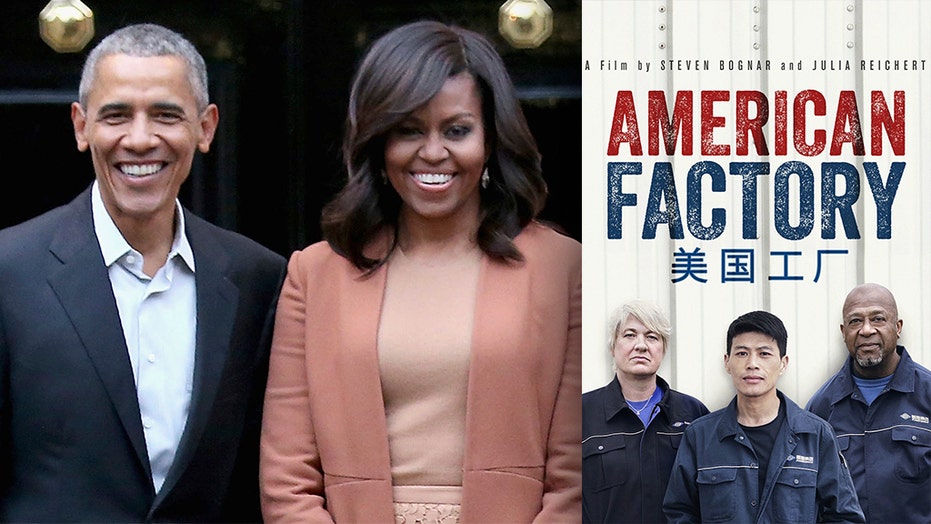
Dear Commons Community,
I was not able to watch the Democratic debate last night sponsored by ABC News. It was held in preparation for the New Hampshire primary being held this Tuesday. Below is a recap, courtesy of the Associated Press.
Tony
———————————————————————————————————–
Associated Press
Front-runners Buttigieg and Sanders beat back debate attacks
By STEVE PEOPLES, KATHLEEN RONAYNE and HUNTER WOODALLtoday
MANCHESTER, N.H. (AP) — Democratic presidential front-runners Bernie Sanders and Pete Buttigieg beat back a barrage of attacks during a debate as rivals raised persistent questions about their ideology and experience, hoping to sow doubts about their ability to defeat President Donald Trump.
Reeling from a weak finish in this week’s Iowa caucuses, former Vice President Joe Biden was a chief aggressor throughout Friday night. He questioned Sanders’ status as a democratic socialist and said Buttigieg, the 38-year-old former mayor of South Bend, Indiana, doesn’t have the background to lead in a complicated world. Sen. Amy Klobuchar of Minnesota, who is struggling to break into the top tier, voiced similar criticisms.
But Sanders and Buttigieg, who are essentially tied in Iowa, largely brushed off the broadsides.
“Donald Trump lies all the time,” Sanders said in response to suggestions that Trump would use his self-described identity as a democratic socialist to brand him — and all Democrats — as radical.
Buttigieg sought to turn skepticism of his resume into a positive, portraying himself as a fresh face from outside Washington with experience in dealing with real-life problems and ready to lead a weary nation in a new direction.
“I’m interested in the style of the politics we need to put forward to actually finally turn the page,” Buttigieg said. He added a jab at Biden: “I freely admit that if you’re looking for the person with the most years of Washington establishment experience under their belt, you’ve got your candidate, and of course it’s not me.”
Friday marked the eighth and perhaps most consequential debate in the Democratic Party’s yearlong quest for a presidential nominee. The prime-time affair came just four days after Iowa’s chaotic caucuses — and four days before New Hampshire’s primary — with several candidates facing pointed questions about their political survival. While several candidates had strong moments, it was unclear the event would change the trajectory of the campaign.
Biden was especially explicit about the state of his candidacy during the opening moments, predicting he would “take a hit” in New Hampshire next week before the contest moves into more diverse states where he hopes to perform better.
He faced criticism on stage as someone too steeped in the ways of Washington to represent the change many Democratic voters say they are seeking. He responded by once again aligning himself with former President Barack Obama.
“The politics of the past I think were not all that bad,” Biden said. “I don’t know what about the past about Barack Obama and Joe Biden was so bad.”
But Biden had to defend his long record as the candidates sparred over the decision nearly two decades ago to send U.S. troops to Iraq.
Biden acknowledged anew that his vote in favor of the war authorization as a senator was a mistake, while Sanders said his Senate vote against deploying troops was proof of his judgment on national security issues. Buttigieg, who was in college at the time and later served in Afghanistan, said he would have opposed the war, too.
While the debate was heated at times, there were moments of unity with candidates aware that Democratic primary voters have little desire to see an all-out intraparty brawl. When a moderator asked Klobuchar to respond to Hillary Clinton’s comments that no one likes Sanders, Biden walked over and gave him a hug. Klobuchar, meanwhile, joked that Sanders is “just fine” and noted times when they had worked together on policy.
A somber Biden was appreciative when Buttigieg defended him and his son, Hunter Biden, against attacks from Trump in the impeachment inquiry.
And while Biden challenged Sanders’ embrace of a version of socialism, most of his rivals seemed willing to overlook that political identity. When the moderator asked whether any of the candidates would have a problem with a democratic socialist as their party’s presidential nominee, only Klobuchar raised her hand.
Warren avoided any direct criticism of her rivals and repeatedly pivoted to her core anti-corruption message. As Biden, Sanders and Klobuchar fought about the best way forward on health care, Warren did not engage, instead speaking broadly about the need to lower prescription drug costs.
Billionaire activist Tom Steyer and New York entrepreneur Andrew Yang, meanwhile, were fighting to prove they belong in the conversation.
Traditionally, the knives come out during this phase in the presidential primary process.
It was the pre-New Hampshire debate four years ago on the Republican side when then-New Jersey Gov. Chris Christie devastated Florida Sen. Marco Rubio’s presidential ambitions with a well-timed take-down. Rubio never recovered, making it easier for Donald Trump to emerge as his party’s presidential nominee.
The stakes were particularly high for Biden, who has played front-runner in virtually every one of the previous seven debates but left Iowa in a distant fourth place. While reporting problems have blunted the impact of the Iowa contest, Biden’s weakness rattled supporters who encouraged him to take an aggressive tack Friday night.
Klobuchar made a passionate pitch to moderate-minded voters unhappy with Biden and Buttigieg.
“I’m not a political newcomer with no record, but I have a record of fighting for people,” she said. “I know you and I’ll fight for you.”
The seven-person field highlighted the evolution of the Democrats’ 2020 nomination fight, which began with more than two dozen candidates and has been effectively whittled down to a handful of top-tier contenders.
There are clear dividing lines based on ideology, age and gender. But just one of the candidates on stage, Yang, was an ethnic minority.
Campaigning in one of the whitest states in the nation, Steyer repeatedly highlighted his support for reparations for African-Americans to make up for the impacts of slavery. His steady focus on race Friday was a reminder that he’s invested heavily in South Carolina, where black voters are expected to play a deciding role and are central to Biden’s strategy for success in later states.
Mike Bloomberg was not onstage Friday night, but the New York billionaire was referenced repeatedly as the candidates took turns bashing the the rich.
The former New York City mayor is bypassing New Hampshire, among the four states that vote this month, in favor of the delegate-rich states that hold primary contests in March and beyond. While no one has ever won the nomination with such a strategy, Bloomberg has caught the attention of establishment-minded Democrats concerned about Biden’s viability and Buttigieg’s thin resume.
Bloomberg is also poised to spend $1 billion on his presidential ambitions.
“I don’t think anyone ought to be able to buy their way into the nomination or be president of the United States,” Warren said in one of her few aggressive moments. “I don’t think any billionaire ought to be able to do it and I don’t think people who suck up to billionaires in order to fund their campaigns ought to do it.”












